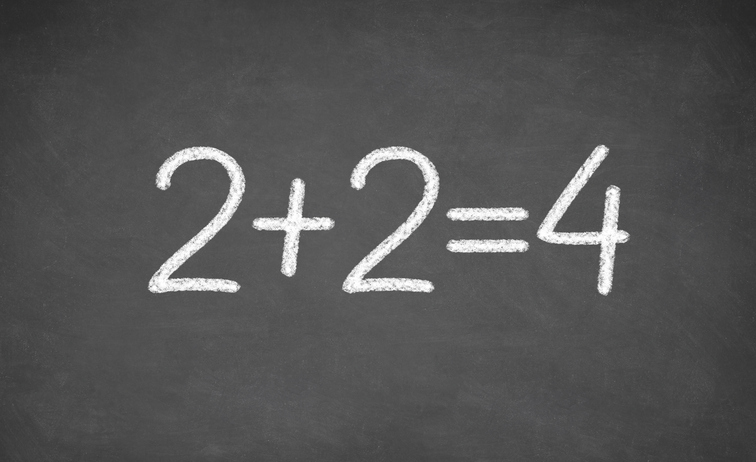
السلام عليكم,
We’ve looked into why a verb will be in the state of nasb. Today, we’re going to see what can change it into the state of jazm.
The Jazm-izers of the present tense verb
وَالْجَوَازِمُ ثَمَانِيَةَ عَشَرَ, وَهِيَ لَمْ, وَلَمَّا, وَأَلَمْ, وَأَلَمََا, وَلامُ الأمْرِ وَالْدُعاءِ, وَ ((لا)) فِي النَهْيِ وَالْدُعاءِ, وَإِنْ, وَمَا, وَمَنْ, وَمَهْما, وَإِذْما, وَأَيٌّ, وَمَتَى, وَأَيْنَ, وَأَيَّانَ, وَأَنََى, وَحَيْثُما, وَكَيْفَما, وَإِذا فِيْ الشِّعْرِ خاصَّةً
The influences that cause jazm are 18, and they are:
- لَمْ
- لَمَّا
- أَلَمْ
- أَلَمَّا
- The ل of commanding and beseeching
- لا in prohibition and beseeching
- إِنْ
- مَا
- مَنْ
- مَهْمَا
- إِذْمَا
- أَيٌّ
- مَتَى
- أَيْنَ
- أَيَّانَ
- أَنَّى
- حَيْثُما
- كَيْفَما
And in poetry only: إِذْا
There are 18 tools used to put a verb in jazm, and they are divided into 2 groups below. If a verb is attached to a pronoun, I bring it out. Otherwise, you should be able to figure out how it looked like in raf’ before becoming jazm-ized.
- Puts one verb into jazm – All of these are harf‘s by consensus
- لَمْ – Used for negation and changes the meaning to the past tense (i.e. something didn’t happen in the past)
- لَمْ يَكُنِ الَّذِيْنَ كَفَرُوْا (“The ones who disbelieved were not…”) [Quran 98:1]
- لَمْ تُؤْمِنُوْا (“You have not believed”) [49:14]
- لَمَّا – Like لَمْ, but a key difference is that it means something hasn’t happened yet (i.e. till now)
- بَلْ لَمَّا يَذُوْقُوْا عَذابِ (“Rather they have not yet tasted my punishment”) [38:8]
- أَلَمْ – It’s the same as لَمْ, but with a أ used to ask a yes/no question
- ألَمْ نَشْرَحْ لَكَ صَدْرَكَ (“Have we not opened your breast for you?”) [94:1]
- أَلَمَّا – Same as لَمَّا, but with the added أ
- ألَمَّا أُحْسِنْ إلَيْكَ؟ (“Haven’t I yet been good to you?”)
- The ل of commanding and beseeching – You’re seeking that someone do something
- Commanding is from the higher one to the lower
- فَلْيَقُلْ خَيْرًا أو لِيَصْمُتْ (“Then he should say good or keep silent“) [al-Bukhari and Muslim]
- Du’a is from the lower to the higher
- لِيَقْضِ عَلَيْنا رَبُّكَ (“Let your Lord put an end to us!”) [43:77]
- Commanding is from the higher one to the lower
- لا in prohibition and beseeching – You’re seeking that someone not do something
- Like the command, prohibiting is from the higher to the lower
- لا تَخَفْ (“Don’t fear”) [20:68]
- لا تَقُوْلوُا رَاعِنا (“Don’t say Raai’inaa”) [2:104]
- لا تَغْلُوْا فِيْ دِيْنِكُمْ (“Don’t commit excess in your religion”) [4:171]
- Du’a is from the lower to the higher
- رَبَّنا لا تُؤاخِذْنا (“Our Lord, don’t punish us“) [2:186] – تُؤاخِذْ (“you punish”)
- لا تَحْمِلْ عَلَيْنا إصْرًا (“Don’t impose on us a burden”) [2:186]
- Like the command, prohibiting is from the higher to the lower
- لَمْ – Used for negation and changes the meaning to the past tense (i.e. something didn’t happen in the past)
- Puts two verbs into jazm – The first is called shart (condition) and the second is called its jawaab (response) and its jazaa (consequence). There are 12 jazm-izers in this group, and it breaks down into four sub-sections:
- There is a consensus that it’s a harf (particle):
- إنْ – For example: إنْ تُذاكِرْ تَنْجَحْ (“If you revise, you will succeed”). إن is a particle used for conditional statements. The condition (تُذاكِرْ – “you study”) and the consequence (تَنْجَحْ – “you succeed”) are both in jazm because of إنْ
- There is consensus that it’s an ism (noun) – These are nine:
- مَنْ (“who”) – used for intelligent beings
- مَنْ يُكْرِمْ جارَهُ يُحْمَدْ (“Whoever honors his neighbor is thanked“)
- مَا (“what”) – used for non-intelligent beings
- ما تَصْنَعْ تُجْزَ بِهِ (“Whatever you do, you will be rewarded for it”
- أَيٌّ (“which”) – you might see ما after it
- أيًّا ما تَدْعُوْا فَلَهُ الأسْماءُ الحُسْنَى (“Whichever you all call, for His are the most beautiful names” [17:110]
- مَتَى (“when”) – it can come with a ما after it
- مَتَى تَلْتَفِتْ إلى وَاجِبِكَ تَنَلْ رِضا رَبِّكَ (“Whenever you attend to your duty, you’ll earn the pleasure of your Lord”
- أَيَّانَ (“when”) – it can come with a ما
- أَيَّانَ تَلْقَنِيْ أُكْرِمْكَ (“Whenever you meet me, I’ll honor you”) – تَلْقَ (“you meet”) and أُكْرِمْ (“I honor”)
- أَيْنَ (“where”) – it can come with a ما after it
- أَيْنَمَا يُوَجِّههُّ لَا يَأْتِ بِخَيْرٍ (“Wherever He directs him, he brings no good”) [16:76] – يُوَجِّهْ (“he directs”)
- أَيْنَمَا تَكُونُوا يُدْرِككُّمُ الْمَوْتُ (“Wherever you all may be, death will overtake you”) [4:78] – يُدْرِكْ (“it overtakes”)
- أَنَّى (“where”)
- أنَّى يَكُنِ السَلامُ فاشِيًا يَأمَنِ الناسُ (“Wherever peace is widespread, the people will feel safe“)
- حَيْثُما (“where”) – Needs to have ما after it to work as a jazm-izer
- حَيْثُما تَسْتَقِمْ يُقَدِّرْ لَكَ اللهُ نَجاحًا (“Wherever you stand firm, Allah will ordain success for you”)
- كَيْفَما (“however”) – both of the jazm-ized verbs have to be from the same verb. In both of the examples below, the condition and the consequence are both from the verb يَكُوْنُ (“to be”)
- كَيْفَما تَكُنِ الأُمَّةُ يَكُنِ الْوُلاةُ (“However the nation is, its rulers will be“)
- كَيْفَما تَكُنْ نِيَّتُكَ يَكُنْ ثَوابُ اللهِ لَكَ (“However your intention is, Allah’s reward for you will be“)
- إِذا – I know I said “9”, but the Arabs cheated a little bit and allowed إذا as a jazm-izer in poetry only. You won’t find it like that otherwise, so it’s not really considered a jazm-izer.
- إذا تُصِبْكَ خَصاصَةٌ فَتَجَمَّلِ (“If destitution befalls you, then adorn yourself”)
- مَنْ (“who”) – used for intelligent beings
- Difference of opinion, but the majority say it’s a harf (particle)
- إذْما – Used for conditions. Must have a ما after it to be jazm-izer
- Difference of opinion, but the majority say it’s an ism (noun)
- مَهْمَا – Used for conditions
- وَقَالُوا مَهْمَا تَأْتِنَا بِهِ مِنْ آيَةٍ لِّتَسْحَرَنَا بِهَا فَمَا نَحْنُ لَكَ بِمُؤْمِنِينَ (”And they said, ‘No matter what sign you bring us with which to bewitch us, we will not be believers in you.'”) [7:132]
- مَهْمَا – Used for conditions
- There is a consensus that it’s a harf (particle):




